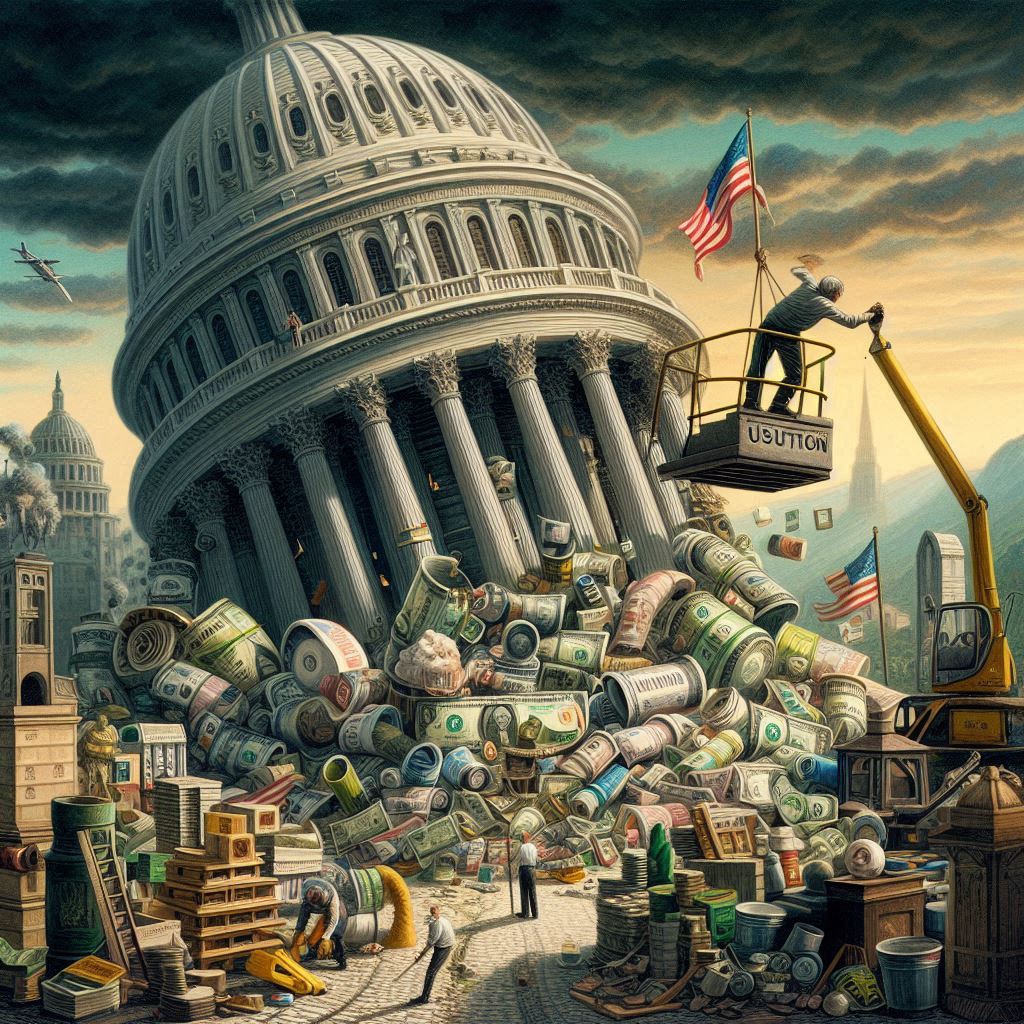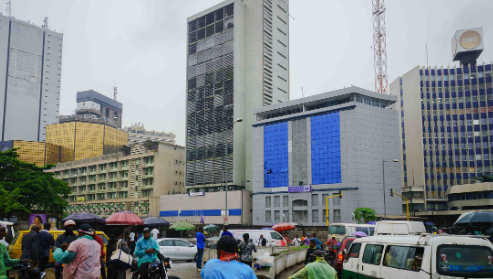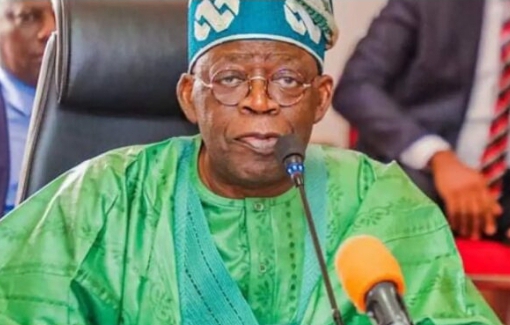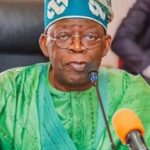[By Idowu Faleye: +2348132100608]
A house built on a shaky foundation is destined to collapse; the same is true for economies. Strong foundations in governance and economic policies are crucial to achieving sustainable growth. Imagine constructing a mansion on a weak foundation—no matter how grand the exterior, without a solid groundwork, it will eventually crumble. This is precisely the situation in Nigeria: a country plagued by unproductive government expenditures, contradictory economic policies, and a lack of strategic vision for long-term growth.
As Nigeria grapples with economic crises, the country’s economic foundation reveals deep cracks. The signs of an impending collapse are apparent in its high unemployment rate, rising inflation, soaring national debt, and increasing poverty. The government’s recent policies reveal a deep-rooted problem: it is building its economy on a shaky foundation of wasteful spending and contradictory policies.

Nigeria’s economic policies are disconnected from reality, focused more on short-term political gains than long-term structural reforms. Imagine owning a house with a leaking roof but deciding to buy luxury furniture instead of fixing the roof. This reflects Nigeria’s misguided priorities, where essential needs are ignored in favour of excessive and unproductive spending.
In contrast, Burkina Faso, a small African country, has demonstrated the importance of solid foundations for economic growth. Under the leadership of its young president, Burkina Faso shifted its focus to meeting essential needs—prioritizing policies that directly benefit the masses. By implementing grassroots economic policies, the president addressed critical areas such as agriculture, infrastructure, and local production. The result is Increased public trust, political stability, and economic growth.
Burkina Faso’s economic redirection serves as a valuable case study for Nigeria. The young leader made bold policy decisions that streamlined government spending, cut unnecessary luxuries, and reinvested in key sectors like agriculture and energy. These changes not only boosted the economy but also fostered loyalty from the masses. In Nigeria, adopting similar policies could spark significant improvements. Grassroots policies aimed at essential needs, such as agriculture and local manufacturing, would generate jobs, enhance food security, and drive sustainable economic growth.
Unfortunately, Nigeria’s economic strategy seems determined to undermine its future. While Burkina Faso focuses on essential, productive policies, Nigeria’s government continues to splurge on wasteful projects and initiatives. The recent purchase of a new multibillion-naira presidential jet, the construction of a new vice-presidential villa, and the costs of frequent medical tourism for government officials show a glaring contradiction in priorities. These unproductive expenditures come at a time when millions of Nigerians struggle to afford basic necessities due to rising costs of fuel and electricity, which have also crippled the private sector.
The Nigerian government, ironically, pleads for foreign loans and investment while indulging in these lavish expenditures. This paradox of begging for foreign aid while simultaneously spending billions on non-essential projects highlights a lack of direction and leadership. What Nigeria needs is not more foreign loans but sound economic policies that reduce waste and focus on sustainable development.
Another significant issue plaguing Nigeria is the destruction of its private sector which is supposed to be the backbone of a vibrant economy. The private sector, which should drive innovation, job creation, and economic growth, is being strangled by harmful government policies. Entrepreneurs are confronted with the challenges of exorbitant loan interest rates, skyrocketed foreign exchange rates that affect raw material costs, and multiple taxation schemes which have stifled businesses, and made it nearly impossible to sustain or grow their ventures.

Moreover, rising fuel and electricity costs have led to higher operating expenses, forcing many businesses to close down or downsize. These policies not only hurt the economy but also worsened unemployment, a major problem that has reached alarming levels in Nigeria. By stifling the private sector, the government is effectively shooting itself in the foot, as it is preventing the engine of economic growth from functioning properly.
The Nigerian government’s approach to economic policy is full of contradictions. On the one hand, it increases workers’ salaries and Youth Corps allowances without boosting productivity or skill development. For example, the recent increase in Youth Corps members’ allowances and the proposal to provide stipends to unemployed youths, though well-intentioned, lack a clear strategy for skill development. Without equipping young people with the skills needed to contribute to the economy, these policies merely provide short-term relief but no long-term solutions.
Read Also: The Detrimental Impact of Quick-Fix Policies on Nigeria’s Development
Another glaring contradiction is the government’s continued subsidy for pilgrimages, which drains public resources without contributing to economic growth but contributing to the tourism growth of other nations. These ill-conceived policies do little to address Nigeria’s economic challenges and instead perpetuate inefficiency and waste.
Drawing from Abraham Maslow’s hierarchy of needs, Nigeria’s economic policies must first address the basic needs of the populace—food, shelter, and security—before focusing on luxury expenditures. By redirecting resources toward essential services, Nigeria can build a more stable and resilient economy that benefits all citizens.
Nigeria must abandon its reliance on foreign economic models, which often fail to account for the country’s unique challenges. Instead, the country should focus on developing homegrown policies that cater to its specific needs. This includes prioritizing agriculture, local production, and an austere governance model.
Agriculture, in particular, holds the key to reviving Nigeria’s economy by creating jobs, ensuring food security, and fostering self-sufficiency. Agriculture should be at the heart of Nigeria’s economic recovery strategy. With the largest arable land in Africa, Nigeria has the potential to become a global leader in agricultural production. Unfortunately, the country has missed numerous opportunities to capitalize on this sector, leaving millions of people reliant on imported food.
Making agriculture a central part of Nigeria’s national curriculum would also ensure that future generations are equipped with the skills and knowledge to drive the country’s agricultural sector forward. By nurturing agricultural entrepreneurs, Nigeria can create jobs, boost local production, and reduce its dependence on imports.

Nigeria’s large population presents another untapped opportunity for economic growth. With over 200 million people, Nigeria can leverage its market size to attract and compel any foreign manufacturers wanting to access the huge Nigerian market to establish a division of its local plants in the country. This would not only create jobs for the country’s unemployed youth but also foster technology transfer and skills development.
By making this part of its international trade policy, foreign companies desperate to access the Nigerian market will set up operations in Nigeria, this will spur industrialization and reduce the country’s reliance on imports. This strategy, if implemented effectively, could transform Nigeria into a hub for manufacturing and innovation in Africa.
Another avenue for economic growth is the export of labour. Nigeria can learn valuable lessons from India, which has successfully managed labour exports to boost its economy. By efficiently managing the relocation of its citizens out of the country and coordinating the wages and remittances of Nigerian workers abroad, the government can ensure that labour export contributes to Nigeria’s GDP.
Structured labour export could reduce unemployment at home while simultaneously increasing foreign exchange earnings through remittances. However, this requires careful planning and coordination to avoid exploitation and ensure that workers receive fair wages.
Read Also: Transform Nigerian Local Councils into Agric Development Centres to Enhance Productivity
Nigeria’s economic growth could also benefit from the use of think-tanks to generate innovative policy solutions. Asiwaju Tinubu, in his capacity as the former Lagos State Governor effectively used think-tanks to transform Lagos into an economic powerhouse. However, replicating this success on a national scale will demonstrate the commitment of the president to prioritize long-term economic planning over short-term political gain.
In sum, Nigeria’s current economic trajectory is unsustainable. Without serious reforms, the country risks further economic collapse. The government must redirect its economic policies toward agriculture, local production, and practical governance. This includes reducing wasteful expenditures, prioritising essential services, and adopting policies that benefit the masses.
By shifting its focus toward evidence-based policies and building a robust economic foundation, the nation can chart a course toward stability, prosperity, and lasting development. Like other successful economies, Nigeria’s future hinges on deliberate actions that foster growth, empower citizens and create opportunities for all.
References:
Iyoha, M. A. (2002). An econometric study of the main determinants of economic growth in Nigeria.
Adeniran, A. I. (2020). Foreign Direct Investment and Nigeria’s Economic Growth: An Empirical Review.
Oyelaran-Oyeyinka, B., & Lal, K. (2006). SMEs and new technologies: Learning in local and global value chains.
Acemoglu, D., & Robinson, J. A. (2012). Why Nations Fail: The Origins of Power, Prosperity, and Poverty.
National Bureau of Statistics (2023). Nigerian GDP Report Q2 2023.
Adeola, F. (2016). Political Stability and Economic Growth in Nigeria.
Born in Ekiti State, Nigeria, Idowu Faleye is a Policy Analyst and IBM-certified Data Analyst with an academic background in Public Administration. He’s the Lead Analyst at EphraimHill Data Consult and the Publisher of EphraimHill DataBlog, which posts regular topics on issues of public interest. He can be reached via WhatsApp at +2348132100608 or email at ephraimhill01@gmail.com
© 2024 EphraimHill DC. All rights reserved. This article is the intellectual property of EphraimHill DataBlog. For permission requests, please contact EphraimHill DC at ephraimhill01@gmail.com.











































![The Trend of Insecurity in Nigeria. [Part 2]](https://ephraimhilldc.com/wp-content/uploads/2024/09/Computer-Monitoring-of-Remote-areas.png)



































